#released in Italy on October 20 1985 and the United States
Photo
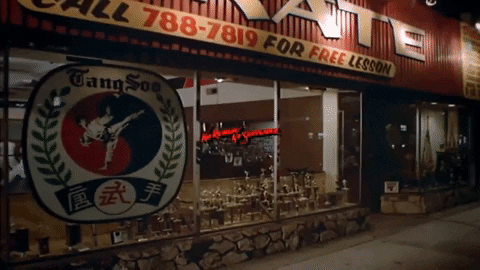

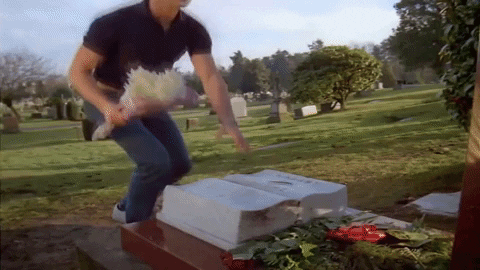

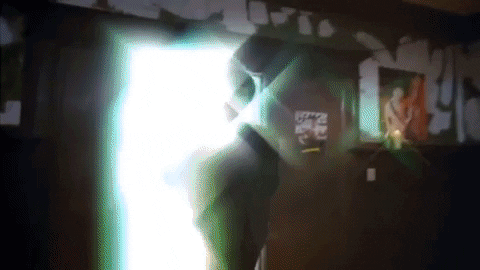
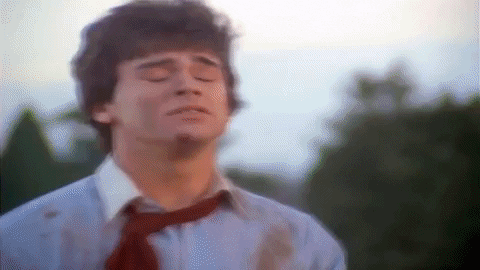

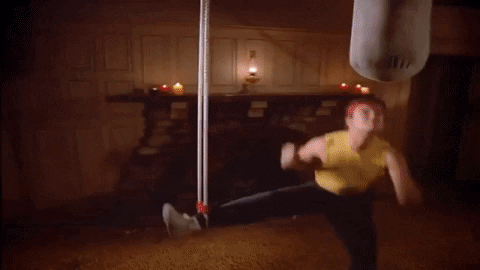



No Retreat, No Surrender (1985) directed by Corey Yuen
#No Retreat No Surrender#1985#80s#80's#martial arts film#Corey Yuen#Kurt McKinney#Jean-Claude Van Damme#released in Italy on October 20 1985 and the United States#my gif#gifs#my edit#bruce lee#80's movies#80s movies
44 notes
·
View notes
Text
Tracy Chapman
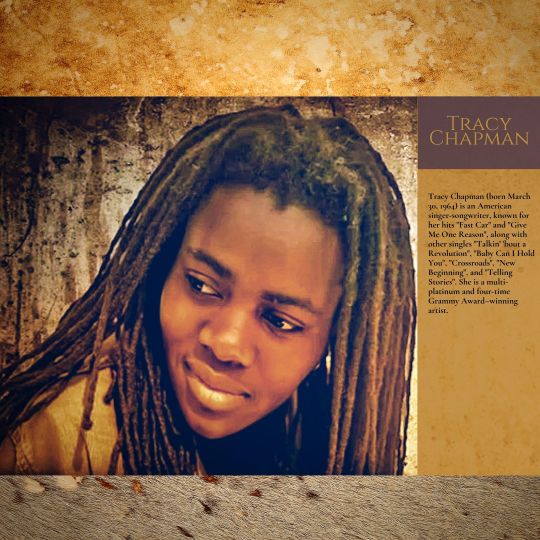
Tracy Chapman (born March 30, 1964) is an American singer-songwriter, known for her hits "Fast Car" and "Give Me One Reason", along with other singles "Talkin' 'bout a Revolution", "Baby Can I Hold You", "Crossroads", "New Beginning", and "Telling Stories". She is a multi-platinum and four-time Grammy Award–winning artist.
Chapman was signed to Elektra Records by Bob Krasnow in 1987. The following year she released her critically acclaimed debut album Tracy Chapman, which became a multi-platinum worldwide hit. The album earned Chapman six Grammy Award nominations, including Album of the Year, three of which she won, including Best Female Pop Vocal Performance for her single "Fast Car", and Best New Artist. Chapman released her second album Crossroads the following year, which garnered her an additional Grammy nomination. Since then, Chapman has experienced further success with six more studio albums, which include her multi-platinum fourth album New Beginning, for which she won a fourth Grammy Award, for Best Rock Song, for its lead single "Give Me One Reason". Chapman's most recent album is Our Bright Future, released in 2008.
Early life
Chapman was born in Cleveland, Ohio. Her parents divorced when she was four years of age. She was raised by her mother, who bought her music-loving three-year-old daughter a ukulele despite having little money. Chapman began playing the guitar and writing songs at age eight. She says that she may have been first inspired to play the guitar by the television show Hee Haw. Chapman's family received welfare. In her native Cleveland, school desegregation efforts led to racial unrest and even riots; Chapman has stated that she experienced frequent bullying and racially motivated assaults as a child.
Raised as a Baptist, Chapman attended an Episcopal high school and was accepted into the program A Better Chance, which sponsors students at college preparatory high schools away from their home community. She graduated from Wooster School in Connecticut, then attended Tufts University, graduating with a B.A. degree in Anthropology and African studies.
Career
Chapman made her major-stage debut as an opening act for women's music pioneer Linda Tillery at Boston's Strand Theater on May 3, 1985. Another Tufts student, Brian Koppelman, heard Chapman playing and brought her to the attention of his father, Charles Koppelman. Koppelman, who ran SBK Publishing, signed Chapman in 1986. After Chapman graduated from Tufts in 1987, he helped her to sign a contract with Elektra Records.
At Elektra, she released Tracy Chapman (1988). The album was critically acclaimed, and she began touring and building a fanbase. "Fast Car" began its rise on the U.S. charts soon after she performed it at the televised Nelson Mandela 70th Birthday Tribute concert in June 1988; it became a number 6 pop hit on the Billboard Hot 100 for the week ending August 27, 1988. Rolling Stone ranked the song number 167 on their 2010 list of "The 500 Greatest Songs of All Time". It is the highest-ranking song on the Rolling Stone list that was both written and performed by a female performer. "Talkin' 'bout a Revolution", the follow-up to Fast Car, charted at number 75 and was followed by "Baby Can I Hold You", which peaked at number 48. The album sold well, going multi-platinum and winning three Grammy Awards, including an honor for Chapman as Best New Artist. Later in 1988, Chapman was a featured performer on the worldwide Amnesty International Human Rights Now! Tour.
Chapman's follow-up album, Crossroads (1989), was less commercially successful than her debut had been, but it still achieved platinum status. By 1992's Matters of the Heart, Chapman was playing to a small but devoted audience. Her fourth album, New Beginning (1995), proved successful, selling over three million copies in the U.S. The album included the hit single "Give Me One Reason", which won the 1997 Grammy for Best Rock Song and became Chapman's most successful single to date, peaking at Number 3 on the Billboard Hot 100. Following a four-year hiatus, her fifth album, Telling Stories, was released in 2000. Its hit single, "Telling Stories", received heavy airplay on European radio stations and on Adult Alternative and Hot AC stations in the United States. Chapman toured Europe and the United States in 2003 in support of her sixth album, Let It Rain (2002).
To support her seventh studio album, Where You Live (2005), Chapman toured major U.S. cities in October and toured Europe over the remainder of the year. The "Where You Live" tour was extended into 2006; the 28-date European tour featured summer concerts in Germany, Italy, France, Sweden, Finland, Norway, the UK, Russia and more. On June 5, 2006, she performed at the 5th Gala of Jazz in Lincoln Center, New York, and in a session at the 2007 TED (Technology Entertainment Design) conference in Monterey, California.
Chapman was commissioned by the American Conservatory Theater to compose music for its production of Athol Fugard's Blood Knot, a play on apartheid in South Africa, staged in early 2008.
Atlantic Records released Chapman's eighth studio album, Our Bright Future (2008). Chapman made a 26-date solo tour of Europe. She returned to tour Europe and selected North American cities during the summer of 2009. She was backed by Joe Gore on guitars, Patrick Warren on keyboards, and Dawn Richardson on percussion.
Chapman was appointed a member of the 2014 Sundance Film Festival U.S. Documentary jury.
Chapman performed Ben E. King's "Stand By Me" on one of the final episodes of the Late Show with David Letterman in April 2015. The performance became a viral hit and was the focus of various news articles including some by Billboard and The Huffington Post.
On November 20, 2015, Chapman released Greatest Hits, consisting of 18 tracks including the live version of "Stand by Me", the album is Chapman's first global compilation release.
In October 2018, Chapman sued the rapper Nicki Minaj over copyright infringement, alleging that Minaj had sampled her song "Baby Can I Hold You" without permission. Chapman's lawsuit requested an injunction to prevent Minaj releasing the song "Sorry" and stated that she had "repeatedly denied" permission for "Baby Can I Hold You" to be sampled. Chapman had previously expressed her reservations about being sampled.
Social activism
Chapman is a politically and socially active musician. In a 2009 interview with American radio network NPR, she said, "I'm approached by lots of organizations and lots of people who want me to support their various charitable efforts in some way. And I look at those requests and I basically try to do what I can. And I have certain interests of my own, generally an interest in human rights." She has performed at numerous socially aware events, and continues to do so. In 1988, she performed in London as part of a worldwide concert tour to commemorate the 40th anniversary of the Universal Declaration of Human Rights with Amnesty International. The same year Chapman also performed in the Nelson Mandela 70th Birthday Tribute, an event which raised money for South Africa's Anti-Apartheid Movement and seven children's charities. In 2004, Chapman performed (and rode) in the AIDS/LifeCycle event.
Chapman has also been involved with Cleveland's elementary schools. A music video produced by Chapman that highlights significant achievements in African-American history has become an important teaching tool in Cleveland Public Schools. Chapman also agreed to sponsor a "Crossroads in Black History" essay contest for high school students in Cleveland and other cities.
Chapman received an honorary doctorate from Saint Xavier University in Chicago in 1997. In 2004, Chapman was given an honorary doctorate in Fine Arts by her alma mater, Tufts University, recognizing her commitment to social activism.
I'm fortunate that I've been able to do my work and be involved in certain organizations, certain endeavors, and offered some assistance in some way. Whether that is about raising money or helping to raise awareness, just being another body to show some force and conviction for a particular idea. Finding out where the need is – and if someone thinks you're going to be helpful, then helping.
Chapman often performs at and attends charity events such as Make Poverty History, amfAR, and AIDS/LifeCycle, to support social causes. She identifies as a feminist.
Personal life
Although Chapman has never publicly disclosed her sexual orientation, writer Alice Walker has stated that she and Chapman were in a romantic relationship during the mid-1990s. Chapman maintains a strong separation between her personal and professional life. "I have a public life that's my work life and I have my personal life," she said. "In some ways, the decision to keep the two things separate relates to the work I do."
Discography
Studio albums
Tracy Chapman (1988)
Crossroads (1989)
Matters of the Heart (1992)
New Beginning (1995)
Telling Stories (2000)
Let It Rain (2002)
Where You Live (2005)
Our Bright Future (2008)
6 notes
·
View notes
Photo
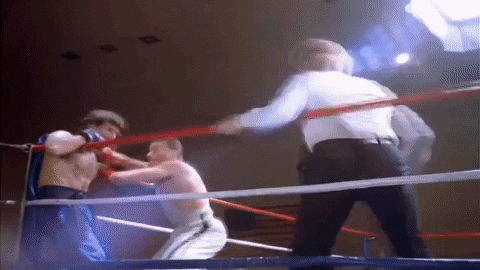
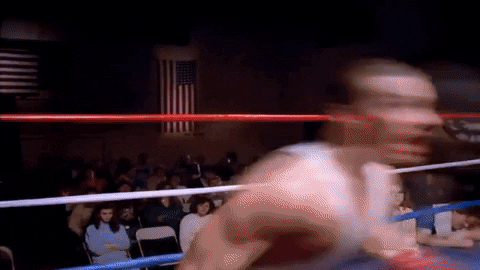
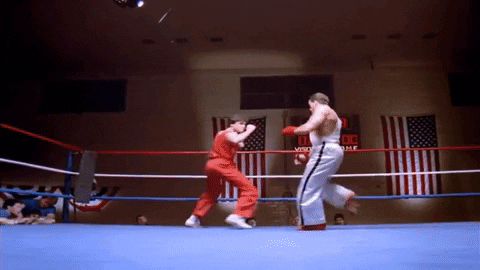
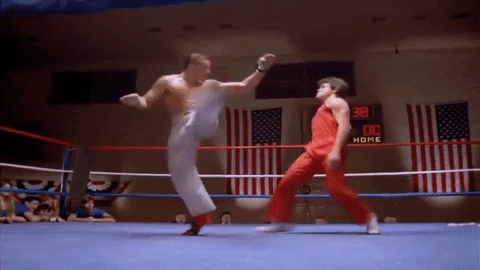
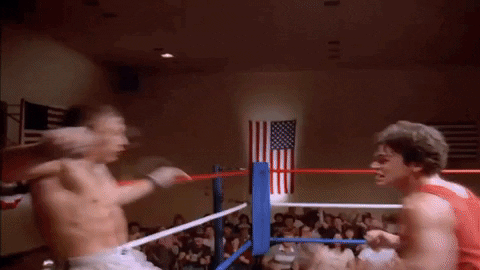
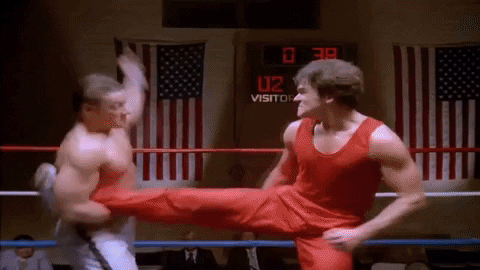
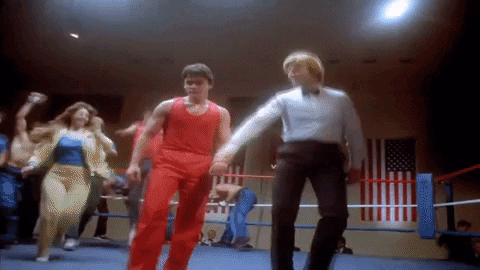
No Retreat, No Surrender (1985) directed by Corey Yuen
#No Retreat No Surrender#1985#80's#80s#martial arts film#No Retreat No Surrender (1985)#Corey Yuen#Kurt McKinney#Jean-Claude Van Damme#The film was released in Italy on October 20 1985 and the United States#my gif#gifs#gif#my edit#80's movies#80s movies
11 notes
·
View notes
Text
(http://www.MaritimeCyprus.com) On 7 October 1985, four members of the Palestine Liberation Front (PLF) hijacked the Italian cruise ship Achille Lauro when it was in the Mediterranean Sea en route from Alexandria, Egypt to Port Said.
The Achille Lauro left Genoa, Italy, on October 3 for a 12-day cruise of the Mediterranean Sea. Aboard were 748 passengers and several hundred crew. On October 7 the ship docked at Alexandria, Egypt, and 651 passengers disembarked to tour the pyramids, intending to rendezvous with the ship at Port Said that night. After the sightseers had gone ashore, four men brandishing AK-47 machine guns corralled the crew and the remaining 97 passengers and forced the captain to leave port. They allowed crew members to continue with their duties.
The men – who had been posing as passengers – were members of a PLF faction headed by Mohammed Zaidan (who used the pseudonym Mohammed, or Abu, ʿAbbās) and aligned with the Palestine Liberation Organization (PLO). After commandeering the vessel, they demanded that Israel release 50 Palestinian prisoners. Israel did not respond, and the vessel headed to Tartus, Syria. Syrian authorities, at the request of the U.S. and Italian governments, refused to allow the vessel to dock when it arrived the next day.
At approximately 3:00 pm on October 8, the militants shot Leon Klinghoffer, an elderly American Jewish man confined to a wheelchair, and threw his body overboard. He was thought to have been singled out because of his religion. The hijackers then steered the ship to Cyprus, where they were also denied port. By this time, Yāsir ʿArafāt, chairman of the PLO, had been contacted; he sent Zaidan to Cairo to mediate the situation. Both men denied any involvement in the hijacking.
Stymied, the hijackers directed the Achille Lauro back to Port Said. They established radio contact with Egyptian authorities and began negotiations as they neared the coast on the morning of October 9. In exchange for releasing the hostages, the hijackers demanded safe passage through Egypt and immunity from prosecution. Egypt acceded and at 5 pm the men disappeared into Port Said.
Though Egypt maintained that the hijackers had left the country, U.S. intelligence reports indicated that they remained there in hiding. The plane on which they had planned to escape—accompanied by Zaidan—was located, and U.S. Pres. Ronald Reagan gave the order to intercept it. On the evening of October 10, U.S. fighter jets blockaded the larger passenger craft and forced it to land at a NATO air base in Sigonella, Sicily. Italy had been informed of the maneuver only minutes before, because the United States hoped to gain custody of the hijackers. A tense standoff ensued between U.S. and Italian forces. Eventually Italy arrested the hijackers, though it allowed Zaidan to leave for Yugoslavia despite suspicion of his involvement. It was later confirmed by Israeli intelligence that he had been directing the hijacking via radio.
In 1986 the four hijackers—Youssef Magied al-Molqui, age 23; Ahmad Marrouf al-Assadi, 23; Ibrahim Fatayer Abdelatif, 20; and Bassam al-Askar, 17—were tried in Italy along with 11 accomplices. Nine, including mastermind Zaidan, were tried in absentia. The three eldest hijackers received sentences ranging from 30 to 15 years in prison; al-Askar was convicted in a separate trial. Zaidan, who after his escape had admitted his role in the hijacking, was located in Iraq during 2003; he died in custody the next year.
This incident awakened governments around the world and the IMO to the security threats faced by passenger vessels.
youtube
youtube
youtube
Flashback in maritime history – Hijacking of Achille Lauro 7 October 1985 (video) (www.MaritimeCyprus.com) On 7 October 1985, four members of the Palestine Liberation Front (PLF) hijacked the Italian cruise ship
0 notes